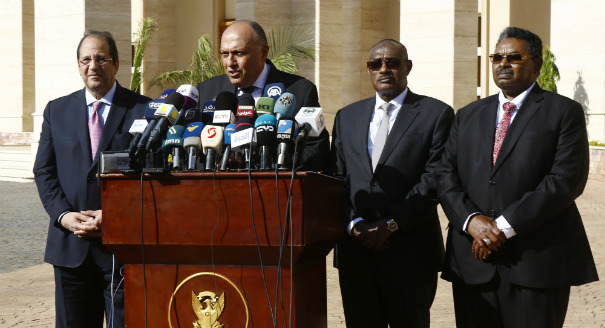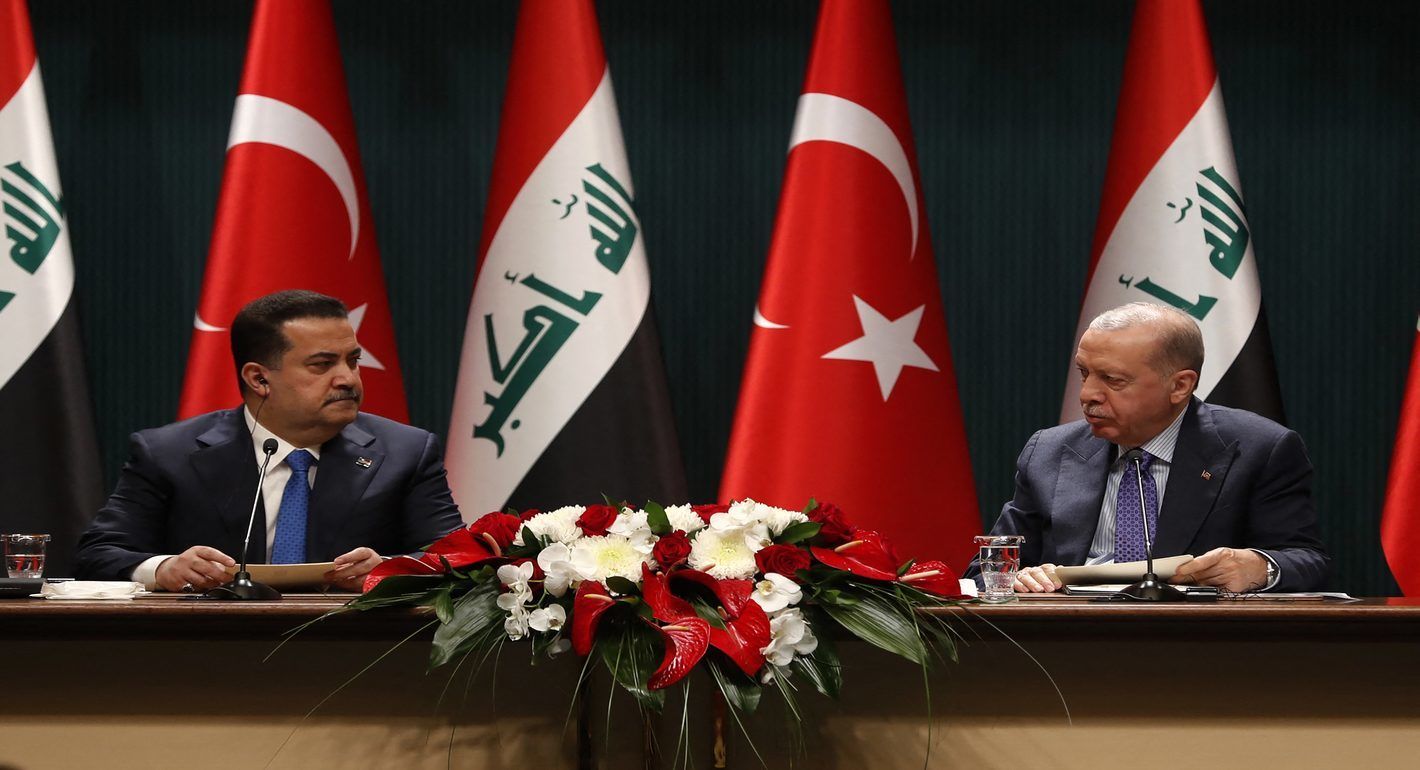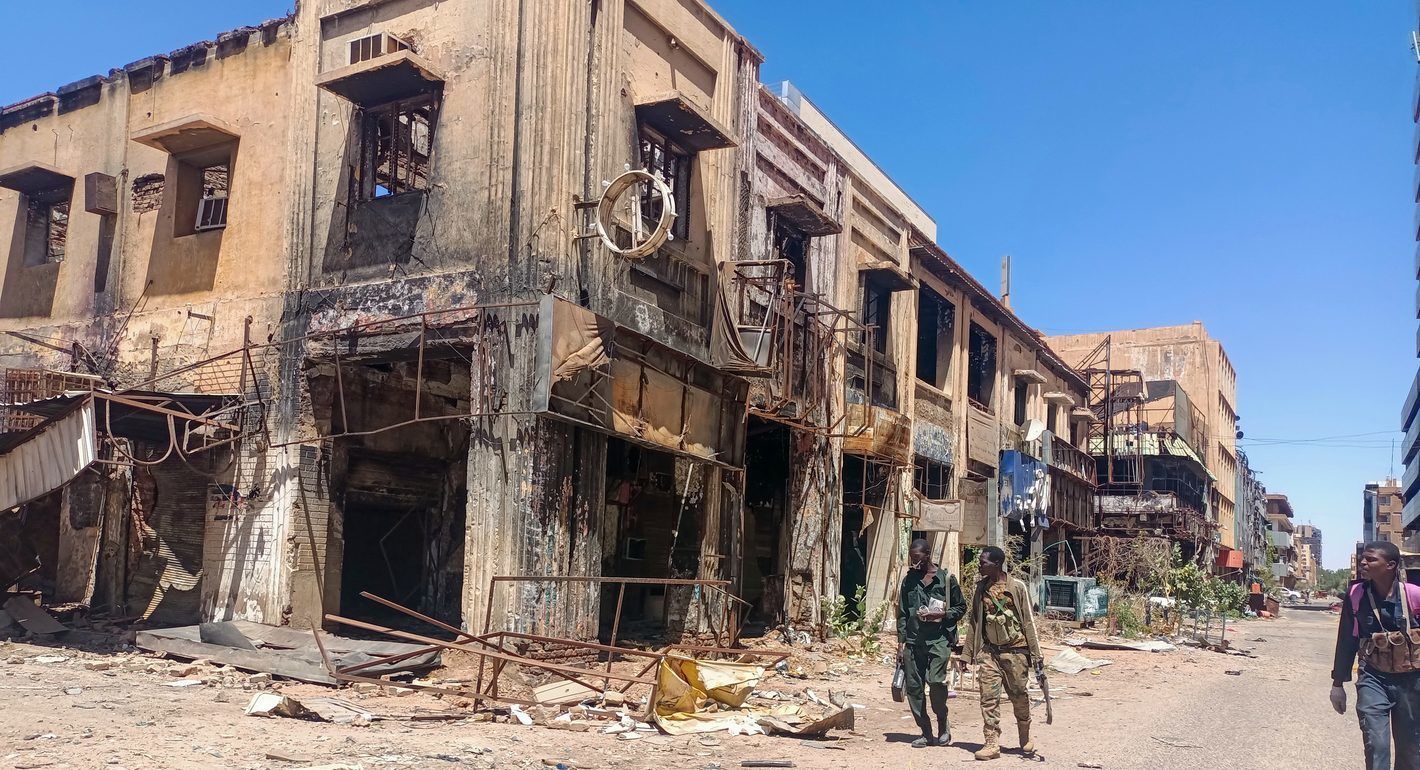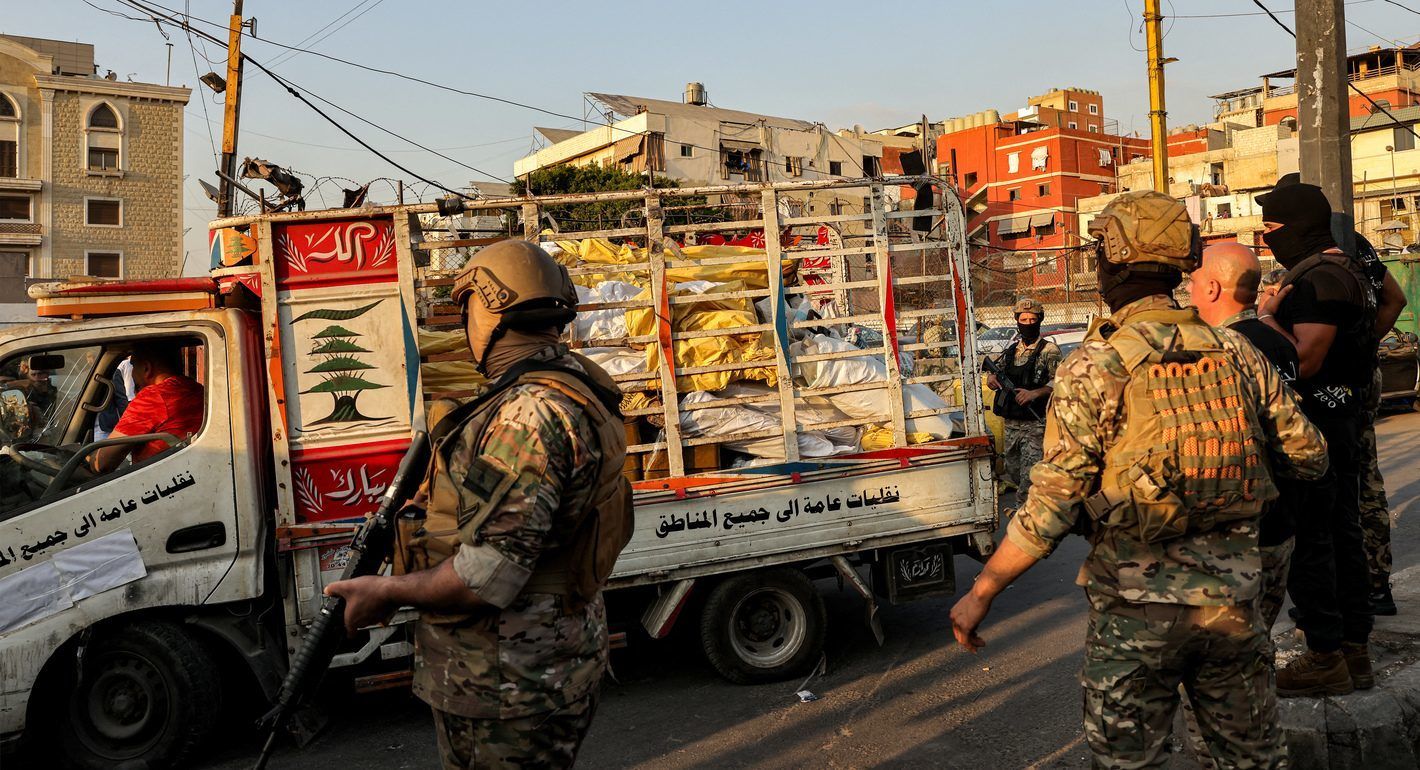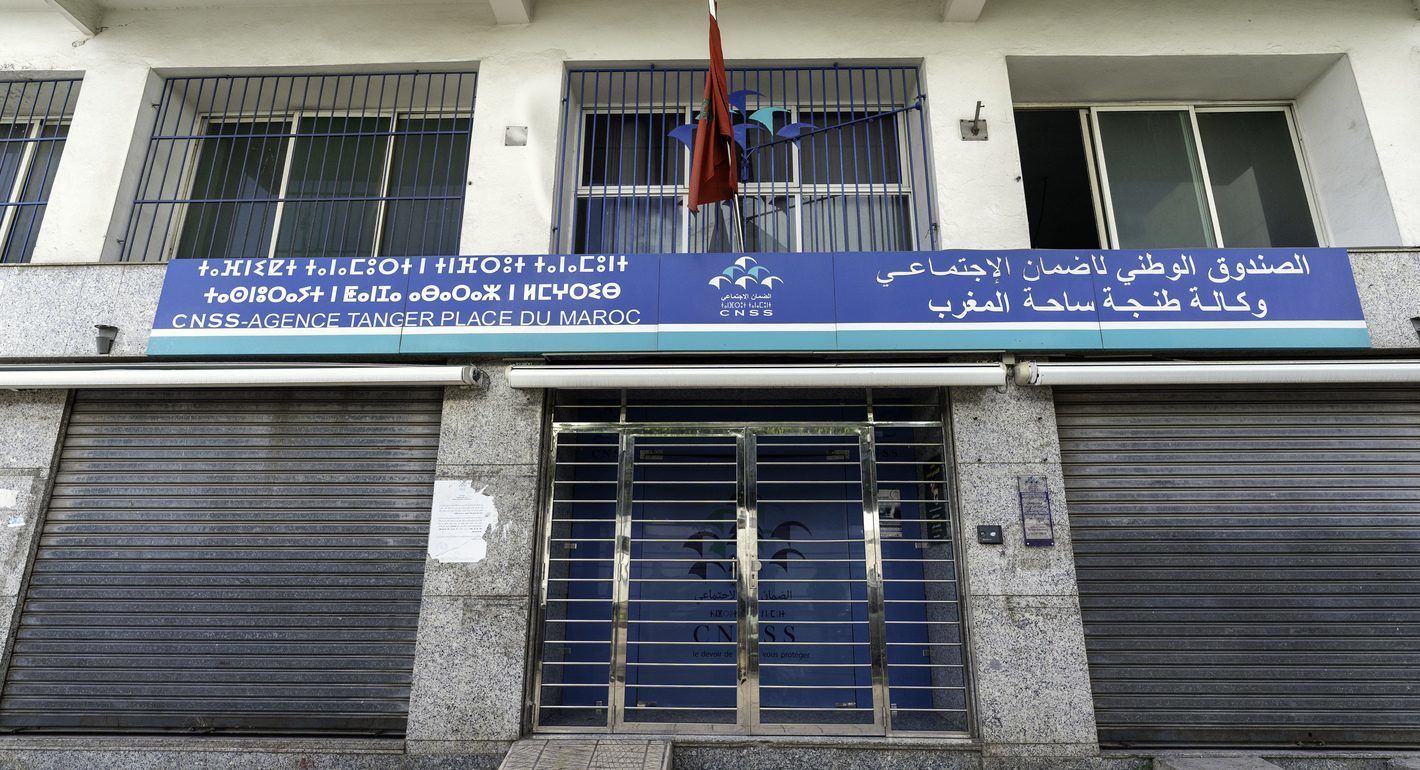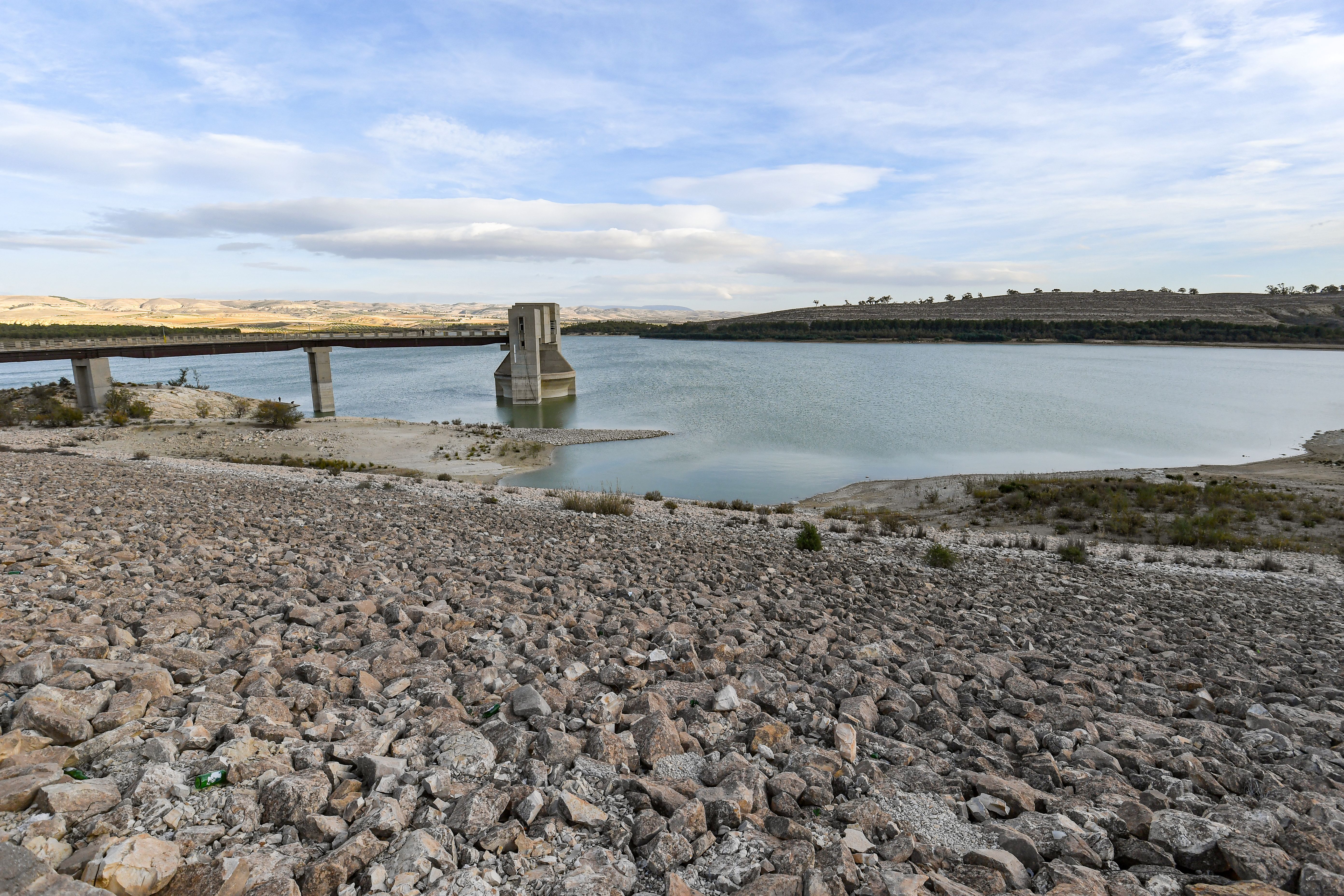On January 27, Sudanese President Omar al-Bashir made a surprise visit to Cairo, where he praised Egypt’s support for “Sudanese stability” against widespread protests that have been ongoing since December 19. These demonstrations against Sudan’s deteriorating economic situation are calling for the end of the regime, posing the greatest challenge to Bashir since he took power in 1989. Adding to their intensity, on January 25 Sadiq al-Mahdi, Sudan’s main opposition leader, threw his weight behind the escalating street protests, which have left over 40 dead and more than 1,000 in jail. Demonstrations continue in at least eleven cities despite the regime’s desperate attempts to quell them through tear gas and live bullets.
Bashir’s visit to Cairo follows weeks of support for the Sudanese regime from Egyptian President Abdel Fattah el-Sisi. On December 27, only days after the protests broke out, Egyptian Foreign Minister Sameh Shukri and intelligence chief Abbas Kamel headed to Khartoum to boost “continuous communication between the two sides at all levels.” On January 5, Sisi received Sudanese Vice President Mohammed El-Merghani and told him that Sudanese stability was an integral part of Egyptian national security. Yet Egypt’s own foreign, economic, and security interests are driving Cairo’s support for Bashir.
In terms of foreign policy, Egypt hopes support for Bashir at this critical time will lead Khartoum to withdraw support for Ethiopia’s completion of the Grand Ethiopian Renaissance Dam (GERD) along the Nile. Cairo sees the dam as a threat to its own water security. Under the current plan, Egypt’s share of water from the Blue Nile would drop by 5 to 10 billion cubic meters per year, out of its total share of 55.5 cubic meters. This would force Egyptian farmers to abandon large swathes of farmland and make it difficult for the already water-scarce country to provide sufficient drinking water for its 100 million people. Ethiopia’s plans would allow Sudan to retain its full share of Nile water, enabling it to put more of its 200 million acres of unused land into production. The GERD’s hydropower production would also obviate Sudan’s need to construct additional dams on the Nile.
Sudan has forcefully defended these interests in the GERD construction, which has earned it Cairo’s ire. In December 2013, after the water resource ministers of Egypt, Ethiopia, and Sudan concluded their second meeting on the issue in Khartoum, Cairo openly accused Khartoum of being a “biased intermediary” favoring Ethiopia. Bashir has since pushed for closer bilateral ties with Addis Ababa, saying in a press conference with Ethiopian Prime Minister Hailemariam Desalegn in April 2017 that there was “no limit to the relationship between the two countries, politically, economically, commercially, culturally, socially, and in security.” Bashir even announced in July 2017 that Sudan had arrested a group of militants from Eritrea aiming to attack the GERD, and vowed that Khartoum would “protect the dam to preserve its interests.”
Although the dam is nearly complete, Egypt fears that Ethiopia’s intent to fill it by 2022 will deplete the flow of the Nile too quickly. Better Egypt–Sudan relations could therefore convince Khartoum to pressure Ethiopia to slow the process of filling the dam, thus giving Egypt more time to find alternative sources of fresh water.
Cairo also hopes that improved relations with Khartoum will help it resolve the Halayeb Triangle border dispute in its favor. The Halayeb Triangle covers 20,580 square kilometers (7900 square miles) at the southeastern corner of Egypt and the northeastern corner of Sudan, with several villages including Halayeb, Abu Ramad, Ras El-Hadariya, Marsa Hamira, and Qaryat Abraq. Sudan sees the triangle as a vital part of its territory and an opportunity to expand Red Sea trade, claiming sovereignty over the area under the 1902 British administrative boundary. Egypt has a competing claim to the territory based on an 1899 Anglo–Egyptian agreement and sees it as important to protecting its southern border from external threats. Egypt has exerted administrative control over the Halayeb Triangle since the mid-1990s and rejects Sudan’s claims. In March 2017, the dispute escalated when Sudan formed a technical committee to demarcate the border and “expel the Egyptians” through diplomatic means. Then on April 17, 2017, the Sudanese Foreign Ministry issued an official statement demanding direct negotiations over the status of the Halayeb Triangle, citing Egypt’s willingness to negotiate the status of islands of Tiran and Sanafir with Saudi Arabia as precedent. Although the ministry threatened international arbitration, their Egyptian counterparts rejected direct negotiations and asserted that the triangle is under Egyptian sovereignty.
Tensions rose when Bashir accused Egypt of backing rebel groups within Sudan, a claim which the Egyptian government emphatically denied. Bashir has also wooed Turkey, with which Egypt has had tense relations since the overthrow of former president Mohammed Morsi in 2013. In December 2017, Sudan even gave Turkey a 99-year lease on the coastal island of Suakin to renovate it, a move that observers saw as a barely veiled threat to Egyptian national security in the Red Sea given the tension between Sisi and Erdogan. Since March 2017, Sudan has also banned the import of various Egyptian goods, including agricultural products and canned fish, and stopped produce imports due to fears over food safety. Shukri’s and Kamel’s visit to Khartoum could be a sign that the Egyptian regime is trying to establish a quid pro quo: Egypt will support Bashir during the crisis in exchange for final resolutions of their disputes, primarily the GERD and the Halayeb Triangle.
On the domestic front, Egypt also sees support for the Sudanese government as crucial to prevent the anti-austerity protests from spreading to Egypt. Economically, Egypt and Sudan are in freefall, compelling both Sisi and Bashir to take unpopular austerity measures such as liberalizing the exchange rate. Egypt has made a series of decisions trying to jumpstart the economy, including raising the cost of energy and pharmaceutical products, amending the income tax, and imposing taxes on cell phones and cigarettes. Its foreign debt rose by $13.6 billion in a single fiscal year to reach $92.6 billion at the end of June 2018. Similarly, the Sudanese government devalued its currency to 18 Sudanese pounds to the dollar, imposed a tariff on electricity for the industrial, agricultural, and commercial sectors, and eliminated wheat subsidies.
The ensuing surge in inflation has been the primary cause of the protests calling for Bashir to resign, as ordinary Sudanese can no longer make ends meet. Egypt fears these protests could spill over the border, particularly as his own domestic popularity has declined and calls for economic protests have begun to rise—such as the “Irhal Ya Sisi” (“Leave, Sisi”) social media movement that emerged in June 2018 after a hike in fuel prices. Support for Bashir is a way for Sisi, similarly accustomed to crushing opposition movements with force, to send Egyptians the message that protests will get them nowhere.
The Egyptian regime also fears that, if the Sudanese protests go on too long, continued violence and chaos could worsen security along the border, through which smugglers supply guns, ammunition, and rockets to Sinai and Gaza. For example, in October 2017, Egyptian security forces arrested three suspects in possession of 106 firearms and 20,000 rounds of ammunition that had been smuggled from Sudan into Qena province in Upper Egypt. Smugglers also take citizens from sub-Saharan African countries across the Egypt–Sudan border, in particular Eritrean refugees seeking to reach Israel. Sisi thus supports Bashir out of concern that instability will increase smuggling into Egypt and to ensure Bashir’s support in tightening security along the border.
By backing Bashir, Sisi is trying to safeguard his own rule. Yet by highlighting support for Sudanese stability, the Egyptian Ministry of Foreign Affairs is also reminding Bashir that it can withdraw this support at any time. This allows Egypt to exploit protests to ratchet up the pressure on Bashir and exact as many concessions as possible. If Bashir stays in power, he may consolidate his ties with Egypt and cooperate on security, economic, and other fields. For instance, during Bashir’s visit to Cairo, he emphasized the importance of security cooperation with Egypt, signaling a commitment to cooperate even once the immediate threat of protests has passed. But if the popular uprising manages to overthrow Bashir, Egypt will likely face a more hostile government, even if it tries to portray its support for Bashir as being for Sudanese stability.
This article was translated from Arabic.
Khalid Mahmoud is an Egyptian journalist focusing on politics and human rights.

